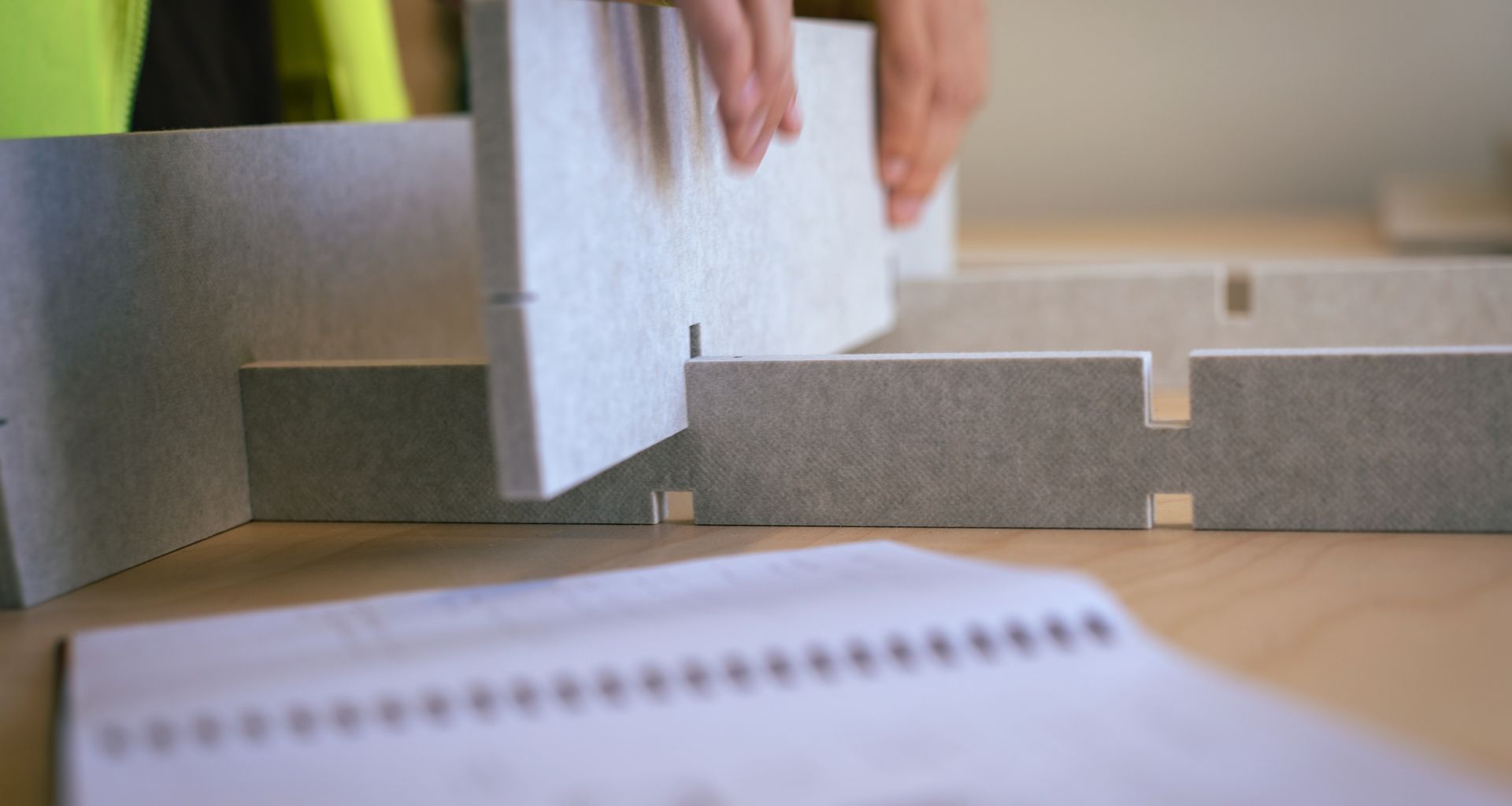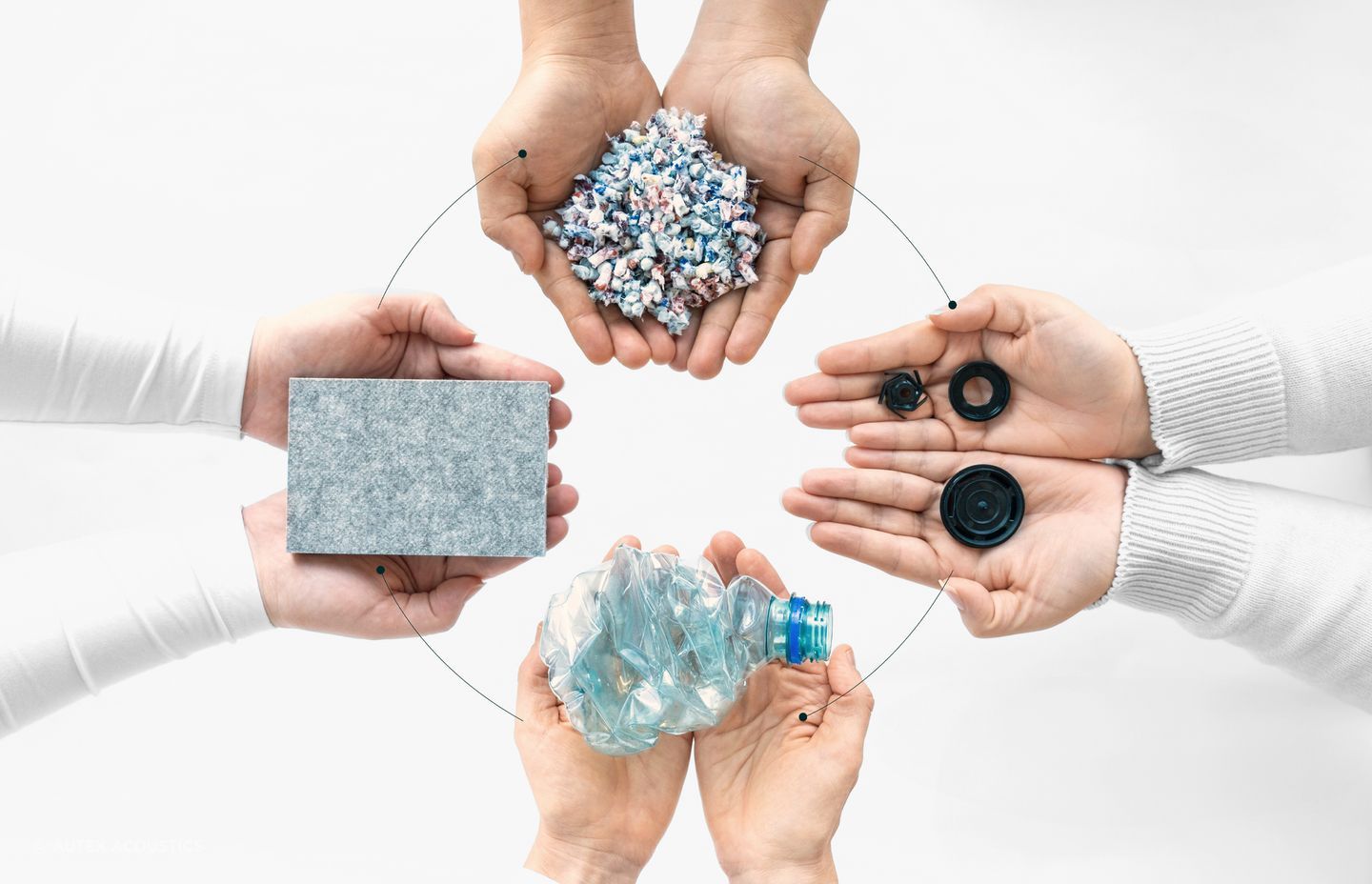Leading the way in circular practices, waste reduction, and carbon neutrality

The architecture and design sector is constantly evolving, and the role of sustainability within it has experienced a profound shift. What was once seen as a box-ticking exercise or an optional add-on is now a central, value-driven element embedded in every thoughtful design process. There has been a global shift towards sustainable practices, leading professionals worldwide to place a stronger emphasis on the environmental, social, and economic benefits of sustainable design principles.
Jonathan Mountfort, creative director at Autex Acoustics, observes, “Architects and designers have deepened their understanding of sustainability as it pertains to their roles and its impact on individual projects. The focus has shifted from general sustainability considerations to more specific and nuanced inquiries about product specifications and sustainability processes. Similarly, questions about our sustainability practices have evolved from ‘do we recycle’ to ‘how do we recycle.’”
Given that sustainability has been a core value at Autex Acoustics since its founding in 1967, it is understandable that architects, designers, and specifiers would assume our strong sustainability credentials. Our first product, insulation, was produced with zero waste for decades, setting a high standard for our commitment to environmentally responsible practices. Today, sustainability is integrated into every aspect of our business, from sourcing materials to product design and manufacturing.
Mountfort elaborates, “Sustainability is inherent in our business operations. It plays a pivotal role in our procurement team’s assessment of potential raw materials and suppliers, considering their environmental and social impacts. Our research and development team also prioritises sustainability, focusing on minimising material usage and designing products for disassembly and recyclability at the end of life. Our production teams are equally dedicated to minimising waste during production and redirecting product trimmings away from landfills.”
This deep integration of sustainability into our business drives a wide range of initiatives aimed at continuously improving our environmental impact and advancing cutting-edge sustainable technology.

In 2021, Autex Acoustics reached carbon neutrality across all global operations, including our entire acoustic product line. We have also implemented a circular economy strategy that guides all our products and operations toward clear, regularly reviewed, and enhanced goals. This ongoing commitment to circularity is reflected in our efforts to continually refine and optimise our processes.
Mountfort highlights an innovative recycling approach for panel offcuts, stating, “In the past, we’ve used recycled manufacturing waste as insulation infill, which is commendable, but now we’ve introduced an industry-first process for recycling panel offcuts made from recycled PET. Traditionally, recycled PET was destined for landfills, but our pioneering machine can convert recycled PET fibre into solid pellets usable by various manufacturers for a range of applications.”
This innovative recycling method for panel offcuts not only promotes resource efficiency and waste reduction but also aligns with Autex Acoustics’ goal of repurposing 100% of post-industrial waste into new products, moving us closer to achieving zero-waste manufacturing lines. Additionally, we are steadily increasing the proportion of recycled content in our products, working toward closed-loop production systems.
These efforts are particularly significant with New Zealanders annually creating over three tonnes of waste each. On top of this, we have the lowest rate of recycling or reuse of waste materials in the OECD with only 35% of our waste being recycled or reused. This is an issue that Autex Acoustics are passionate about having a positive impact on with our commitment to design for circularity.
Mountfort asserts, “As product designers, we prioritise designing for circularity to ensure our products are as sustainable as possible. While products like Frontier™ , Lanes™, and Grid Ceiling Tiles can be disassembled at the end of their life, our ultimate aim is to have 100% of our product portfolio designed for disassembly. Moreover, we aspire to repurpose all post-industrial waste generated during the manufacturing process into new products, paving the way for zero-waste manufacturing lines. Our commitment to sustainability extends to collaborating with the broader industry to advocate for improved product stewardship, recognising the importance of collective action in achieving a greener future.”
In a world where sustainability is an ever-evolving concept, companies like Autex Acoustics are essential in shaping the future of sustainable design practices. By embedding sustainability into our core values, operations, and product development, we demonstrate our commitment to environmental responsibility and aim to inspire others in the industry to follow suit.
